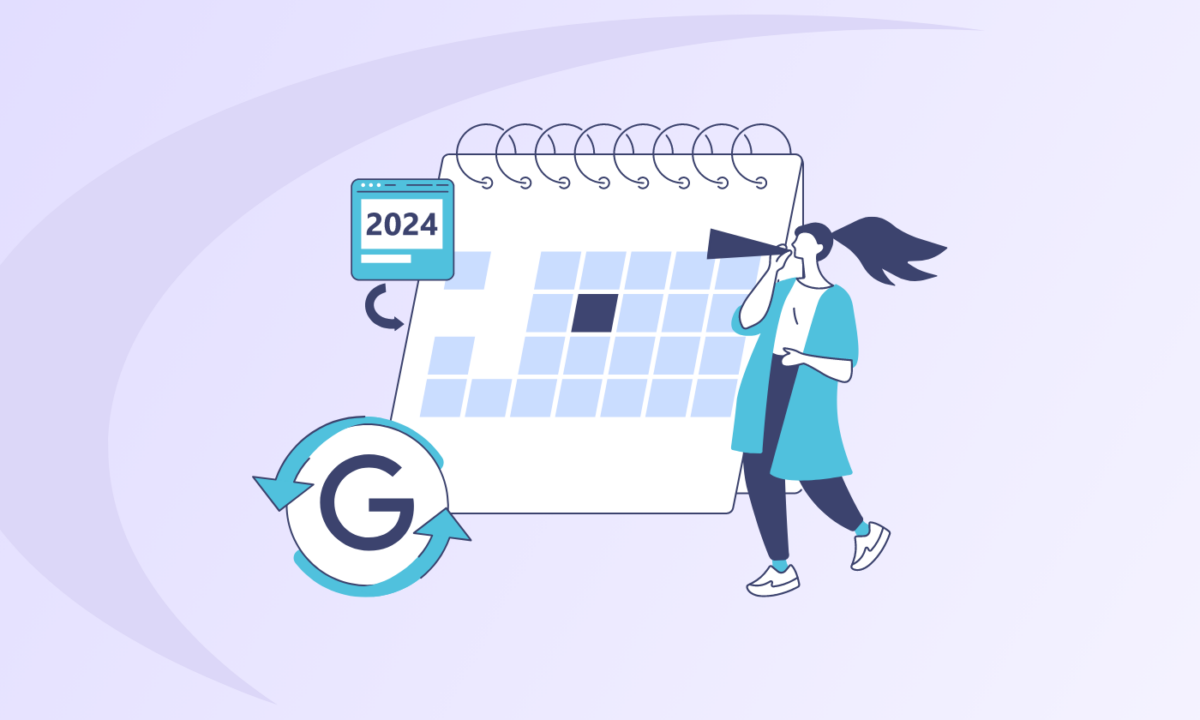Google March 2024 Core Update: What You Need to Know
Every few months, Google rolls out what’s known as a “core update,” which is a significant change to its search algorithms aimed at improving the overall quality of search results.
These updates can shake up the search rankings, typically rewarding high-quality content while penalizing sites that fail to meet Google’s ever-evolving standards. If you need help reversing a Google penalty we can help you.
Recently, Google announced the March 2024 core update, which is essentially aimed at reducing spammy content (i.e. low-quality, automatically-generated, mass-produced content) and improving the quality of search results by displaying more content that people find genuinely useful.
Keep reading to learn everything you need to know about Google’s March 2024 core update and understand if and how it might affect your site.
What is the March 2024 Core Update All About?
The March 2024 core update is a significant overhaul, with a focus on reducing unhelpful content and introducing stringent measures against manipulative SEO practices. It includes algorithmic improvements and new spam policies aimed at ensuring users receive valuable, relevant, and high-quality search results.
According to Google, this update is a more complex one than their usual core updates, as it involves changes to multiple core systems. It also takes Google’s stance on the “helpfulness of content” to the next level.
Once it’s completely rolled out, pages deemed “unhelpful”, unoriginal, and spammy are likely to be demoted by a huge margin (40%, to be precise, as per Google’s estimates). With a focus on improving content relevancy and user trust, the March 2024 core update represents a big step forward in Google’s ongoing efforts to refine its algorithms for a sublime search experience.
3 Key Changes in the March 2024 Core Update
The March 2024 Core Update introduces several key changes aimed at improving search quality.
1. Enhanced Content Evaluation
One of the biggest changes this update is bringing about is how Google evaluates content quality.
Google has been working on tracking down and eliminating unhelpful content since 2022 and this new core update serves as a reinforcement to those efforts.

This update involves refining some of our core ranking systems to help us better understand if webpages are unhelpful, have a poor user experience or feel like they were created for search engines instead of people. This could include sites created primarily to match very specific search queries. We believe these updates will reduce the amount of low-quality content on Search and send more traffic to helpful and high-quality sites
Put simply, the update is poised to reduce the visibility of content created primarily for attracting clicks rather than providing value. This means cookie-cutter and auto-generated content at scale will likely be caught and penalized.
2. New Spam Policies
Google has long had spam policies to help protect users and improve the quality of search results.
With this core update, Google introduces three new spam policies against SEO malpractices that are becoming more prevalent:
- Expired domain abuse: Where domains are repurposed for manipulative ranking benefits. Expired domains that are purchased and repurposed with the intention of fast-tracking rankings with low-quality content are now considered spam. A lot of SEOs use exipred domain SEO as a tactic to quickly rank new content. There are whole websites dedicated to finding expired domains for SEO. It looks like Google just killed that entire industry.
- Scaled content abuse: As mentioned above, Google is fortifying its policy against using automation to generate substandard or unoriginal content at scale to manipulate search rankings. The updated policy focuses on the manipulative intent of producing content at scale to boost rankings, irrespective of whether automation (such as generative AI), humans, or a blend of both are involved. Here, Google is going after programmatic SEO with low value for users.
- Site reputation abuse: This occurs when reputed websites (that users tend to trust) host low-quality content from third-party contributors or brands to cash in on the hosting site’s strong stature. Google is going after Parasite SEO here. Parasite SEO is a tactic that includes sharing content on well-established and authoritative external platforms. For instance, posting on LinkedIn and Medium, which tend to achieve quick rankings, or featuring coupon and hosting deals in newspapers, represents another example of this strategy.
- Things Google Now considers as SPAM
1) Expired domains that are purchased and repurposed with the intention of boosting the search ranking of low-quality content are now considered spam.
2) Google now considers spam to include content created at scale, irrespective of whether it is generated purely through automation or involves a combination of automation and human input. ( previously this was limited to just automated low quality content )
3) Content generated by third parties with minimal value, primarily created for ranking purposes, and lacking close supervision from a website owner will no be considered as spam by Google.
Speaking of site reputation abuse — “such content ranking highly on Search can confuse or mislead visitors who may have vastly different expectations for the content on a given website. We’ll now consider very low-value, third-party content produced primarily for ranking purposes and without close oversight of a website owner to be spam.” — states Tucker in the announcement.
Note that the updated spam policy does not automatically mark all third-party content as a violation; it specifically addresses content that lacks rigorous oversight and aims to manipulate search rankings. Many publications, for instance, feature advertorial or native advertising content for their audience, not with the primary goal of altering search rankings. This type of content, familiar and clear to the publication’s audience, need not be blocked from Search. Check out illustrative examples of site reputation abuse here.
3. Link Signal Adjustments
Besides cracking down on content, domain, and reputation abuse, the March 2024 core update also seems to be deemphasizing backlinks as a strong ranking factor.
In Google’s documentation for spam policies, there’s a seemingly minor yet potentially notable edit, from “Google uses links as an important factor in determining the relevancy of web pages.” to “Google uses links as a factor in determining the relevancy of web pages.”
Eliminating the word “important” from the discussion on links could be seen as vague. However, considering past statements about the significance of links — such as Gary Illyes’ remark at Pubcon Austin 2023 about links not being in the top three most important ranking signals — this removal appears to hint at downplaying their role in search rankings.
Moreover, manipulative outgoing links are also under scrutiny:
“Any links that are intended to manipulate rankings in Google Search results may be considered link spam. This includes any behavior that manipulates links to your site or outgoing links from your site,” as per the link spam section of the documentation.
So, while Google has always penalized publishers that sell backlinks, now they are explicitly mentioning external links as something their algorithm is considering.
Winners and Losers of the March 2024 Core Update
The update is just starting to roll out, and identifying the winners (sites that experience a ranking boost) and losers (sites that see their rankings tank) of this update would mean observing shifts in search rankings and traffic metrics post-update.
Here are some sites that tanked completely
You can check the site: search links to see that the sites are entirely deindexed on Google.
| Domains That Lost Traffic | site: Search on Google |
|---|---|
| equityatlas.org [4M – 900k] | Google Link |
| filmifeed.com [1M – 850k] | Google Link |
| qmunicatemagazine.com [750k – 680k] | Google Link |
| newsunzip.com [400k – 290k] | Google Link |
| tvguidetime.com [300k – 770k] | Google Link |
| healthyceleb.com [260 – 500k] | Google Link |
| hnbgu.net [250k – 130k] | Google Link |
| popularbio.com [220k – 530k] | Google Link |
| popularnetworth.com [215k – 470k] | Google Link |
| networthpost.org [120k – 350k] | Google Link |
That said, the losers of this update are already becoming apparent.
Gael’s post on X doesn’t necessarily mean using generative AI tools like ChatGPT to aid content creation is bad. However, relying on such tools completely (think copy-paste) and/or using them to mass-produce low-quality content is indeed going to hurt your rankings sooner or later. So, it’s probably best to view GenAI tools like ChatGPT as assistants (say, to brainstorm, get feedback, write short descriptions, etc.) instead of as a way to hijack search rankings with large-scale spam.
Ultimately, websites providing high-quality, user-focused content will likely soon see improvements in their search visibility, aligning with Google’s emphasis on valuable and relevant content. Conversely, sites that engaged in manipulative SEO practices, such as using expired domains for SEO gain or automating content creation at scale, would experience declines.
Important Dates for the March 2024 Core Update
The March 2024 core update is beginning to roll out globally this week. Being a major update, completion of the rollout may take from two to four weeks.
Site owners will likely see more fluctuations in rankings than with a regular core update, as various ranking systems get updated and reinforce each other. You will find a post on the Google Search Status Dashboard when the update is finished.
In particular, for site reputation abuse, Google has allowed a two-month timeframe for site owners to comply with the new policy, which will take effect starting May 5, 2024.
| Date | What Happened |
|---|---|
| 05/03/2024 | March 2024 Core Update Started Rolling Out |
| 05/05/2024 | Site reputation abuse policy goes in to effect |
| TBA | March 2024 Core Update Rollout Complete |
March 2024 Core Update Penalty Reversal
If you’ve read so far, you may be left with two questions:
First, how do you check if you were hit with the March 2024 core update?
To determine if your site was impacted, monitor your website’s traffic and rankings through tools like Google Analytics and Google Search Console around the update rollout dates. Significant fluctuations in metrics and any changes in the indexation status of your pages may indicate an impact from the update.
Google has sent emails to some users about manual actions, while others have not received them. It’s also a good idea to check if you have received a manual action notice in Google Search Console. You can find it under Security & Manual Actions >> Manual actions in the sidebar.

A manual action notice will look something like this.

And second, what to do if you were hit with the March 2024 core update?
To reverse penalties from the March 2024 Core Update, check your site’s performance metrics and Search Console for any notifications. If you think your site has been penalized, focus on enhancing content quality and adherence to Google’s spam-related guidelines. Address specific issues discussed above, such as expired domain use, content scaling abuses, and manipulative link practices. Once addressed, you can submit a reconsideration request through the Search Console. This process demonstrates your commitment to aligning with Google’s quality expectations, potentially restoring your site’s search visibility.
PS: If you need expert assistance in reversing the impact of this update or recovering from a penalty hit, our team of seasoned SEO specialists is here to help you reclaim your rankings and refine your strategy for sustained growth.
DIGITAL MARKETING FOR ALL OF AUSTRALIA
- SEO AgencyMelbourne
- SEO AgencySydney
- SEO AgencyBrisbane
- SEO AgencyAdelaide
- SEO AgencyPerth
- SEO AgencyCanberra
- SEO AgencyHobart
- SEO AgencyDarwin
- SEO AgencyGold Coast
- We work with all businesses across Australia



